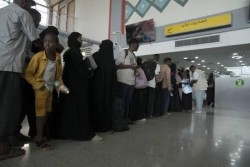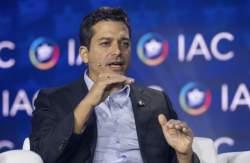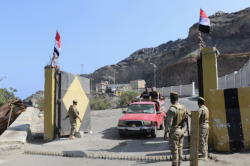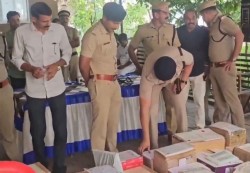India coronavirus: The tragedy of the tuk-tuk driver who fled Covid
- 2020-12-29 17:17:38


 Pierre Rayer: Art, Science, and Happiness: The Universal Mission of Transmission to Future Generations through Patronage at the Louvre Abu Dhabi
Pierre Rayer: Art, Science, and Happiness: The Universal Mission of Transmission to Future Generations through Patronage at the Louvre Abu Dhabi Ahly crowned Super champions after dramatic extra-time win over Modern Future FC
Ahly crowned Super champions after dramatic extra-time win over Modern Future FC Yemeni Honey..A Development Wealth Threatened By Conflict And Climate Change
Yemeni Honey..A Development Wealth Threatened By Conflict And Climate Change California wildfires: Millions warned of possible power cut
California wildfires: Millions warned of possible power cut Central African rebels launch attacks near capital
Central African rebels launch attacks near capital UNHCR Repatriates Nearly 1,000 Somali Refugees from Yemen in 2025
UNHCR Repatriates Nearly 1,000 Somali Refugees from Yemen in 2025 Israeli minister says war with Syria is now inevitable
Israeli minister says war with Syria is now inevitable Political Realignment in Southern and Eastern Yemen Raises Maritime Security Concerns
Political Realignment in Southern and Eastern Yemen Raises Maritime Security Concerns Kerala Police Bust ₹100-Crore Fake Degree Racket; 11 Arrested Across India, Including 3 From Tamil Nadu
Kerala Police Bust ₹100-Crore Fake Degree Racket; 11 Arrested Across India, Including 3 From Tamil Nadu Florida Plane Crash Caught Small Aircraft Collides with Car in the US
Florida Plane Crash Caught Small Aircraft Collides with Car in the US
